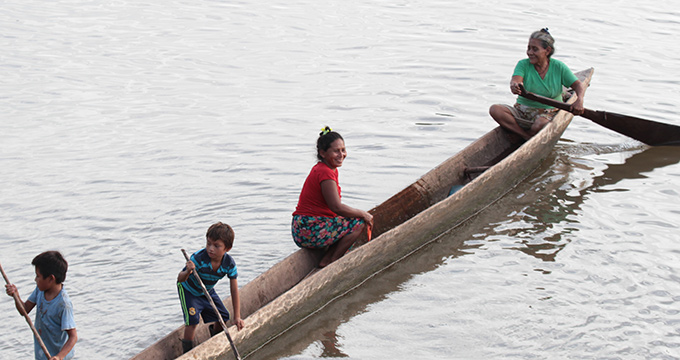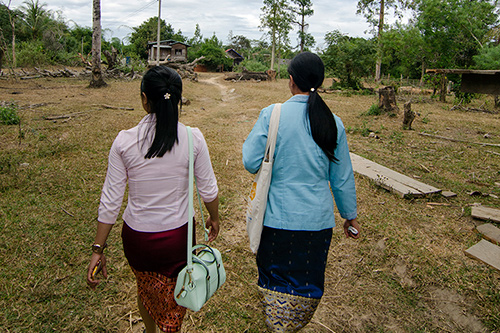News
This International Women’s Day marks 20 years of progress
- 06 March 2015
News
UNITED NATIONS, New York – “I already heard in the past that women and men are equal,” said Firuza Sirojeva, a schoolgirl in Tajikistan, after attending a workshop on women’s rights. “But here, at the training, I learned that it might be real.”
This year, International Women’s Day, on 8 March, marks 20 years since the historic World Conference on Women in Beijing underlined gender equality as a global priority.
Solid evidence links the advancement of women’s and girls’ empowerment to the health, education, productivity and welfare of future generations. Yet, around the world, gender equality remains elusive.
“No country in the world has achieved gender equality, and discrimination in the law persists in many countries,” said UNFPA Executive Director Dr. Babatunde Osotimehin, in his statement marking International Women’s Day.

“Women’s rising education attainment and workforce participation have not been matched with equal prospects for advancement and equal pay,” he said.
Although women comprise roughly half the population, they own only one per cent of the world’s wealth, according to the United Nations Development Programme.
Poverty exacerbates the suffering of women and girls. One in three girls in developing countries are married before reaching age 18, and one in nine are married before age 15.
“And everywhere, violence against women and girls continues to take a devastating toll,” said Dr. Osotimehin.
An estimated one in three women will experience physical or sexual abuse in her lifetime. An estimated 100-140 million women and girls alive have undergone some form of female genital mutilation (FGM).

In 1995, the Beijing Declaration and Platform for Action offered a global blueprint for advancing women’s rights.
Since then, governments and activists have made enormous strides. “Today, more girls are going to school, more women have joined the labour force, and more women have access to sexual and reproductive health services, including family planning,” said Dr. Osotimehin.
Renowned Jordanian midwife Munira Sha'bana has witnessed this progress first-hand. “Twenty years ago, women used to receive orders from male family members and elderly women on reproductive health in general, on the number of children they should have, and on all the other personal reproductive decisions to be taken,” she said. Today, she added, Jordanian women “know their rights, and they decide for themselves the number of children they want and how to manage their health.”

These successes often have a cascade effect: When a woman or girl is empowered, she sets an example for the whole community, helping to promote the rights and opportunities of those around her.
When Haja Aicha in Sudan learned about the harms caused by FGM, she mobilized the women in her community against it – not only helping to spare the girls in her village from this harmful practice but also showing her community the value of women’s leadership.
“I always felt I had a role to play,” she told UNFPA.
When Zeinabou, a 15-year-old girl in Niger, escaped her abusive husband, she sought not only freedom from violence but also the knowledge to protect herself from further harm.
She enrolled in the UNFPA-supported Action for Adolescent Girls workshop, where she learned about the harms caused by child marriage and adolescent pregnancy. She was also trained in human rights, literacy and basic financial skills.

Zeinabou was inspired to reach out to other girls, urging them to become educated and learn about their rights.
“As soon as I can, I tell my friends everything I know,” she said.
Girls in Ethiopia, Guatemala, Zimbabwe and many other countries taking these lessons to heart, becoming agents of change on behalf of the women and girls in their communities.
And these achievements must continue to grow. “We should encourage women to reach the high ranks of decision-makers,” said Ms. Sha'ban. “We should encourage women to seek continuous training, and to seek education, and to be empowered in all stages of their lives.”